Is Apple helping the UK to be healthier?
Is Apple helping the UK to be healthier? https://www.citizenme.com/wp-content/themes/corpus/images/empty/thumbnail.jpg 150 150 Shaun Richards https://secure.gravatar.com/avatar/a8ce564a017acc0ef1de7902096f812d?s=96&d=mm&r=gIs Apple helping the UK to be healthier?
Connected devices for health tracking have never been more in trend and accepted in society as a major contributor to the health of everyday people. Indeed, Deloitte predicts that 320 million consumer health and wellness wearable devices will ship worldwide in 2022, rising to 440 million units by 2024 (Source).
Specifically, the UK Wearables Technology Market is expected to register a compound annual growth rate (CAGR) of no less than 17% from 2022 to 2027. Wearable technology such as smartwatches, head-mounted displays, wristbands, ear-wearables, and other device types (e.g. smart clothing) are driving this significant growth in the market. With the help of these devices, users can monitor their calories burnt, hours of sleep, exercise, and steps taken (Source).
There are many major companies who are all vying for market share in this lucrative consumer wearables market. However, according to Counterpoint research, just a few companies take up the lion’s share of the market, and Apple has the biggest slice.
So with Apple having a dominance in the market, are consumers buying these wearable products to help with their health and wellness, or are they just fashion objects that have been marketed well?
What did we do?
CitizenMe ran a UK study requesting health data, via the CitizenMe Marketplace, from Citizens with the CitizenMe app. The CitizenMe app gives Citizens the ability to gather their own health data and fully consent to and anonymously share their true health metrics by connecting to either Apple Health or Google Fit. Additional questions were asked to understand more behaviours and attitudes.
Reaching over 370 UK Citizens with a health connection in the CitizenMe app, we split them into two groups:
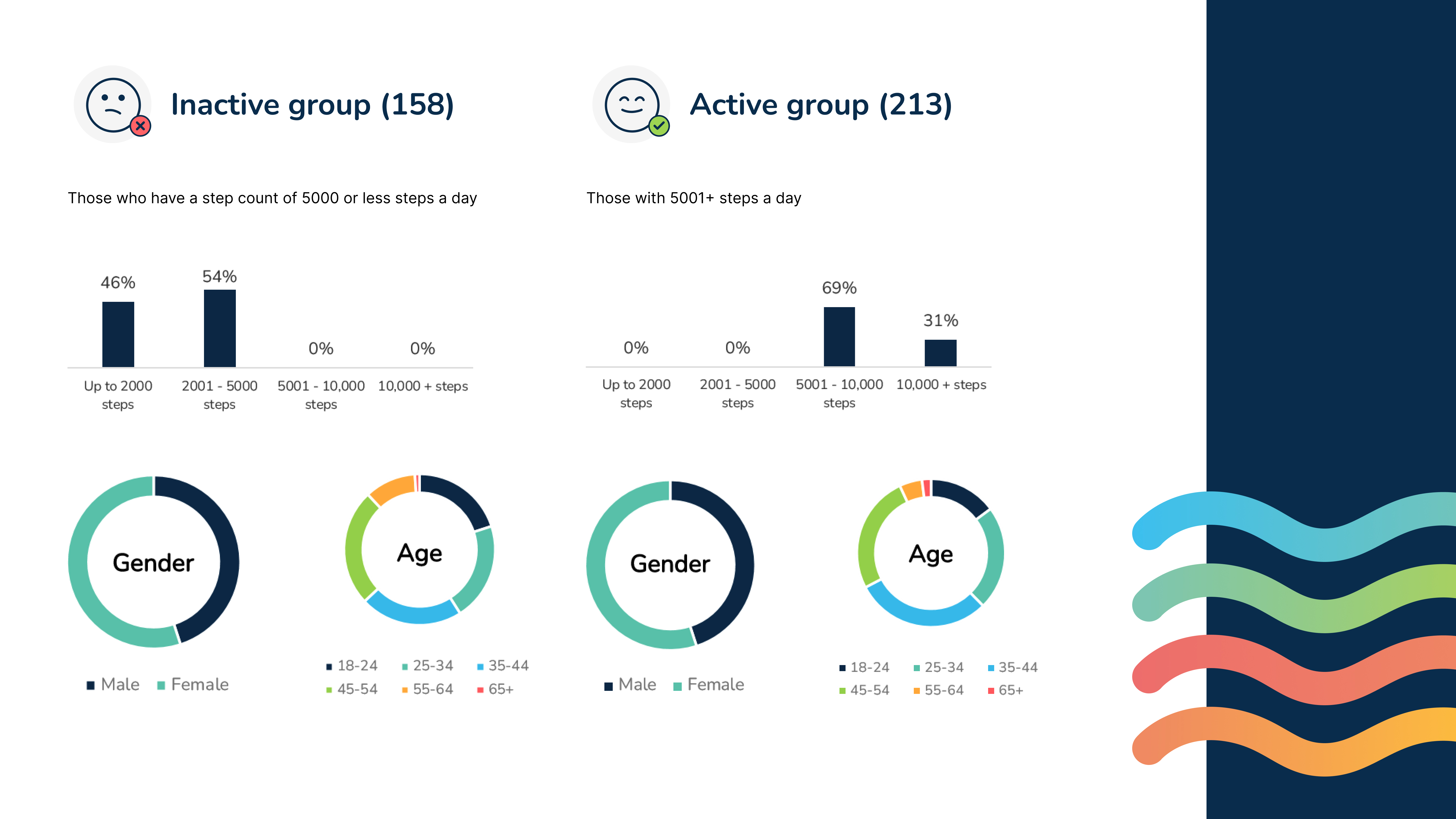
According to the UK’s National Health Service (NHS), the average Brit walks between 3,000 and 4,000 steps a day. People walking over 5000 steps a day are considered to be more active, with 10,000 steps per day considered to be the target for most adults.
What we found?
When looking at just height, weight and Basal Energy Expenditure (BEE) Score, there is no real differences between the ‘Inactive’ and ‘Active’ groups. This was the same when split out among males and females within the ‘Active’ and ‘Inactive’ groups.
Where it gets interesting is in the differences between the ‘Active’ and ‘Inactive’ groups when their health and wellness behaviours are taken into consideration:
1. The ‘Active’ group burn considerably more calories on average compared to the ‘Inactive’ group. This is especially true of males.
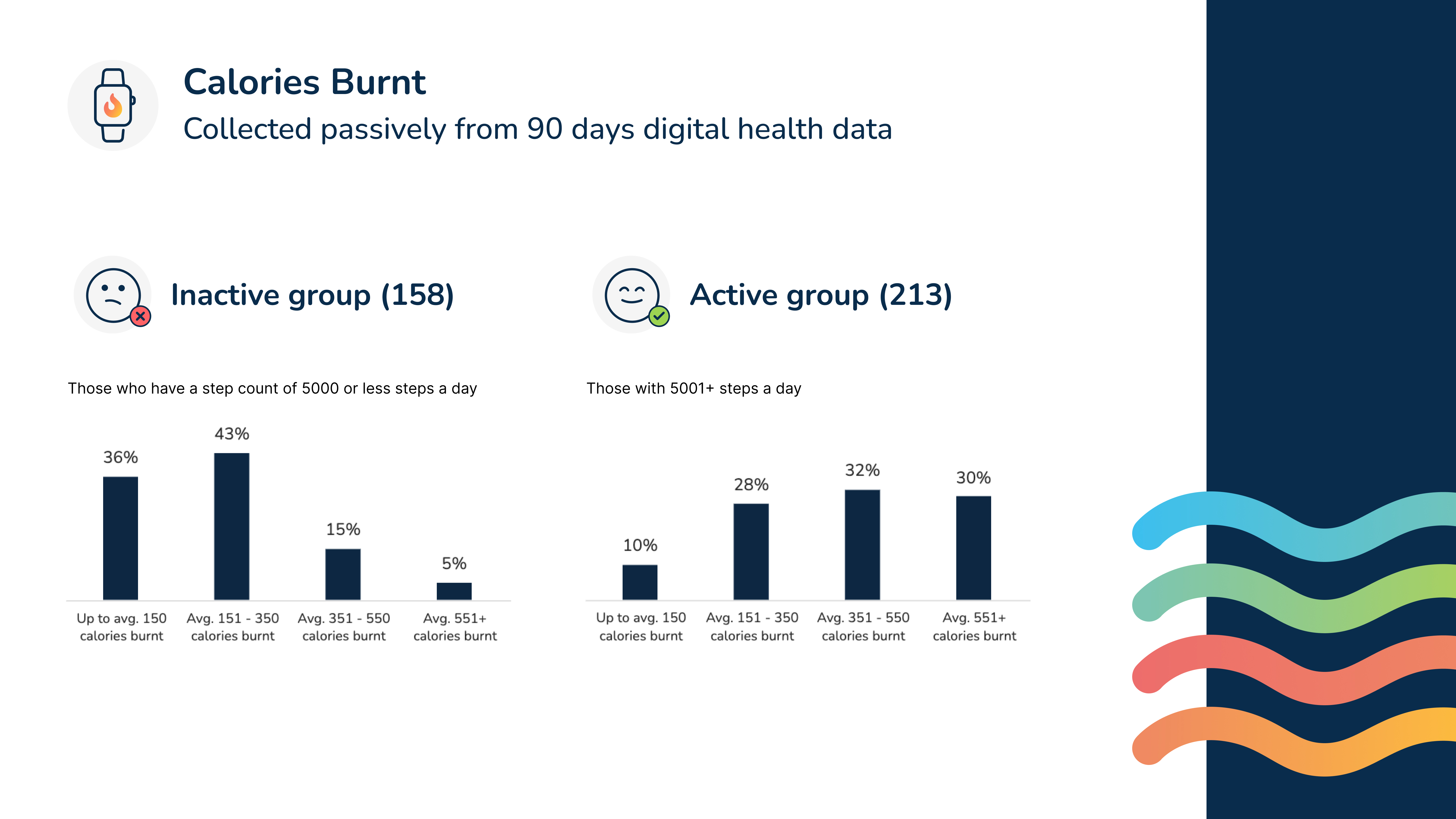
2. The ‘Active’ group are more likely to have health and wellness apps installed on their smartphone, such as ‘My Fitness Pal’ and ‘Boots’.
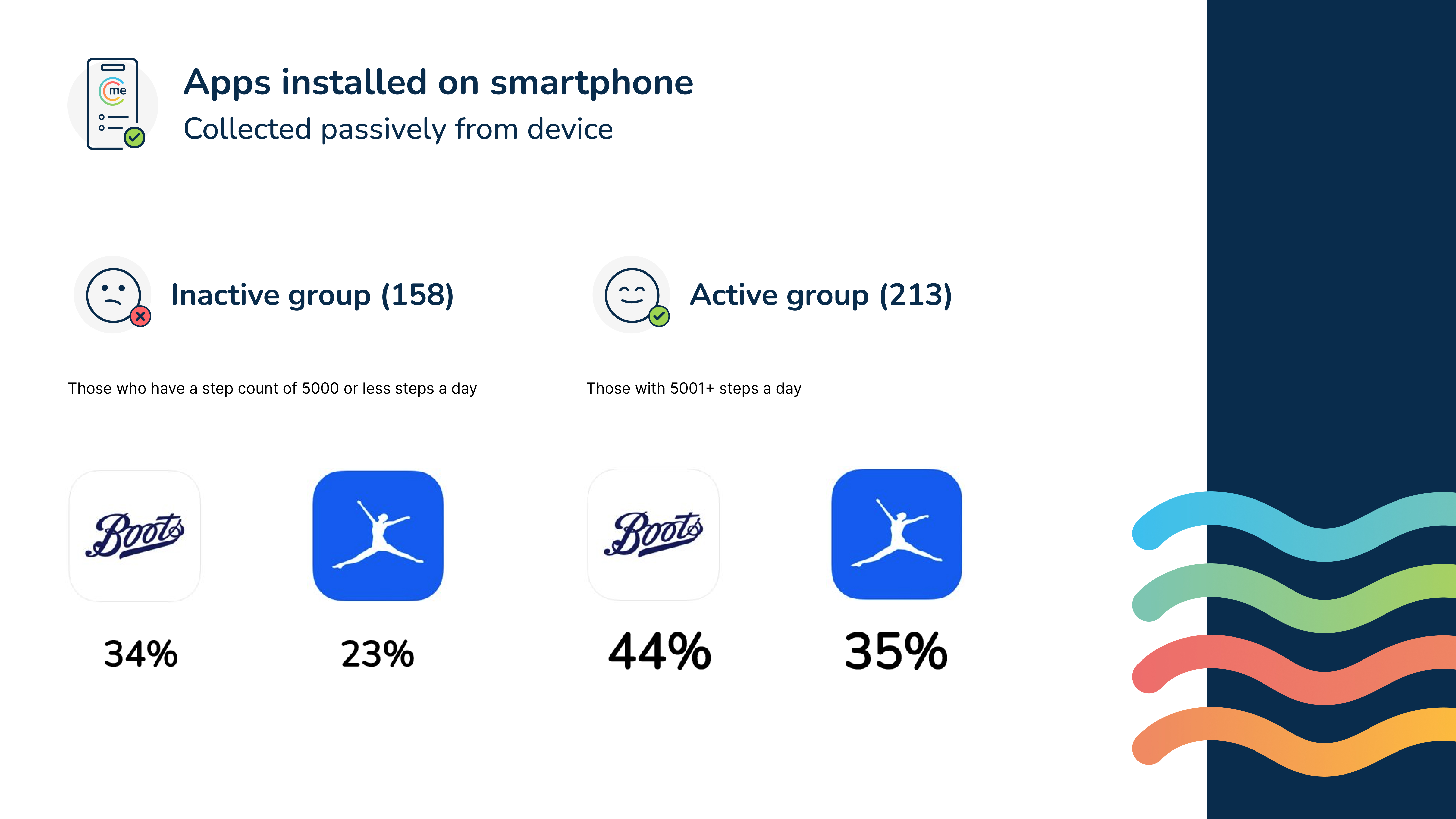
3. The ‘Active’ group claim to exercise more frequently compared to the ‘Inactive’ group.
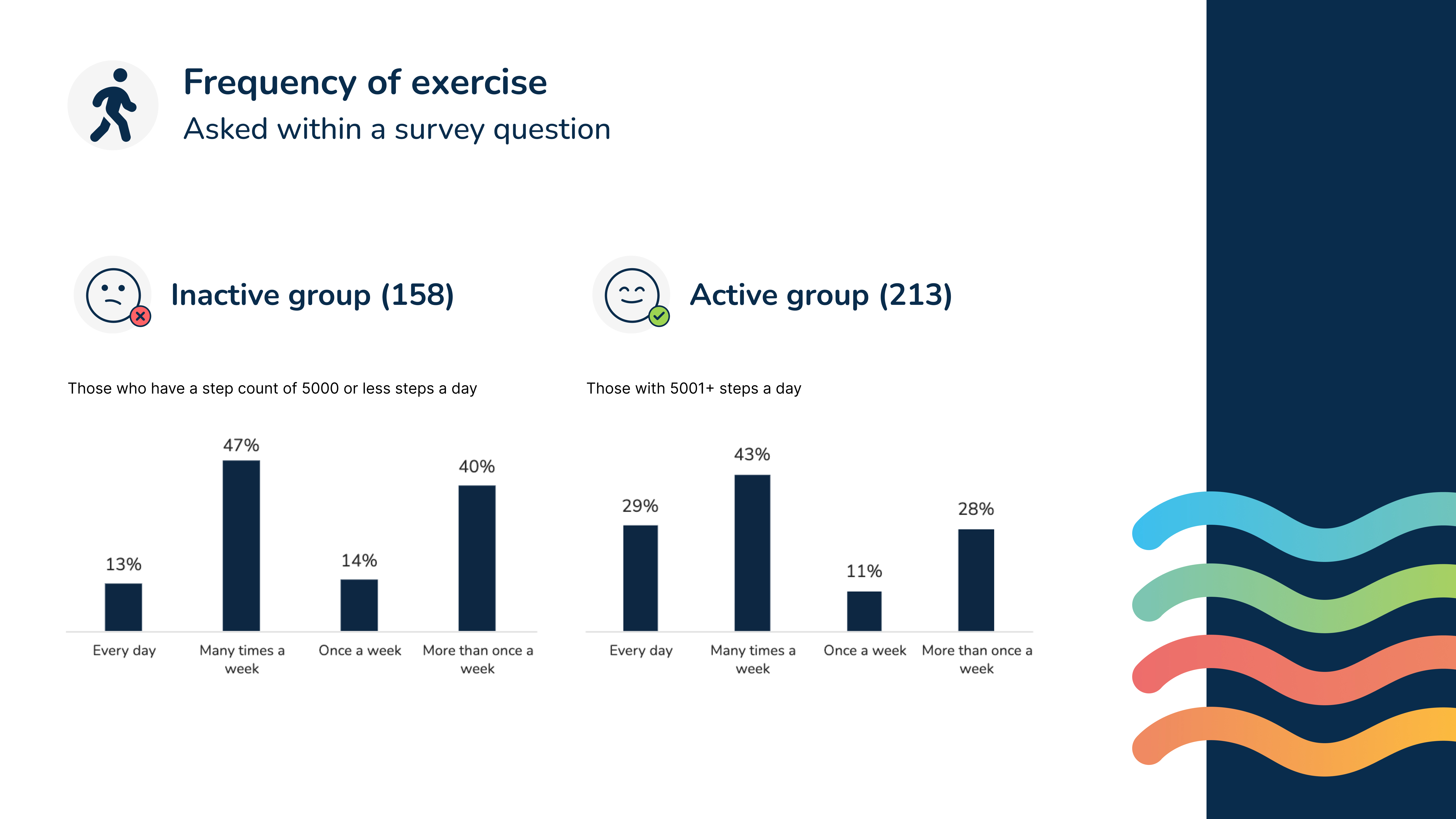
4. The ‘Active’ group are a little more focused on tracking their health metrics compared to the ‘Inactive’ group.
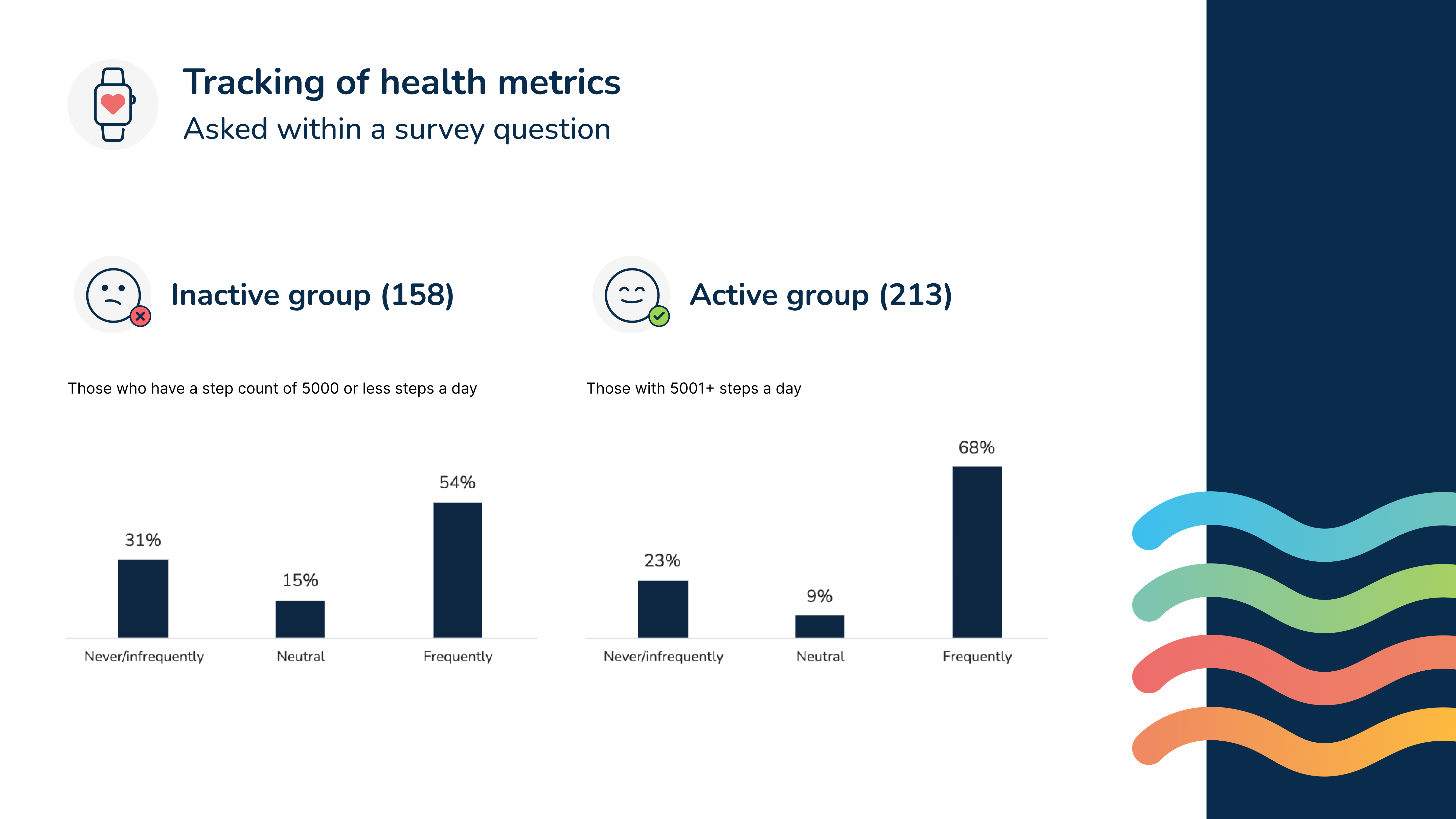
5. The ‘Active’ group are twice as likely to have a smartwatch. This smartwatch is much more likely to be an AppleWatch.
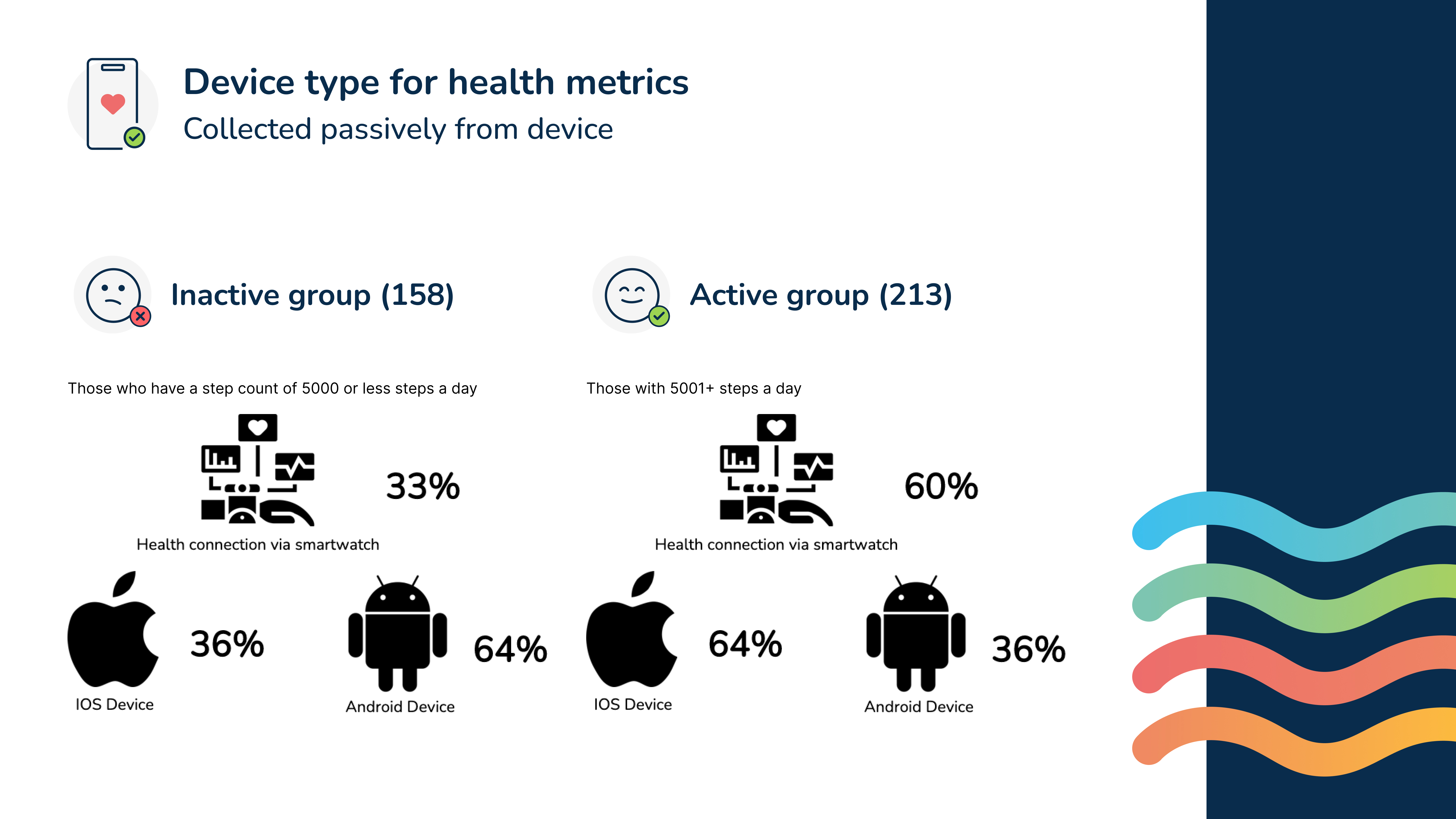
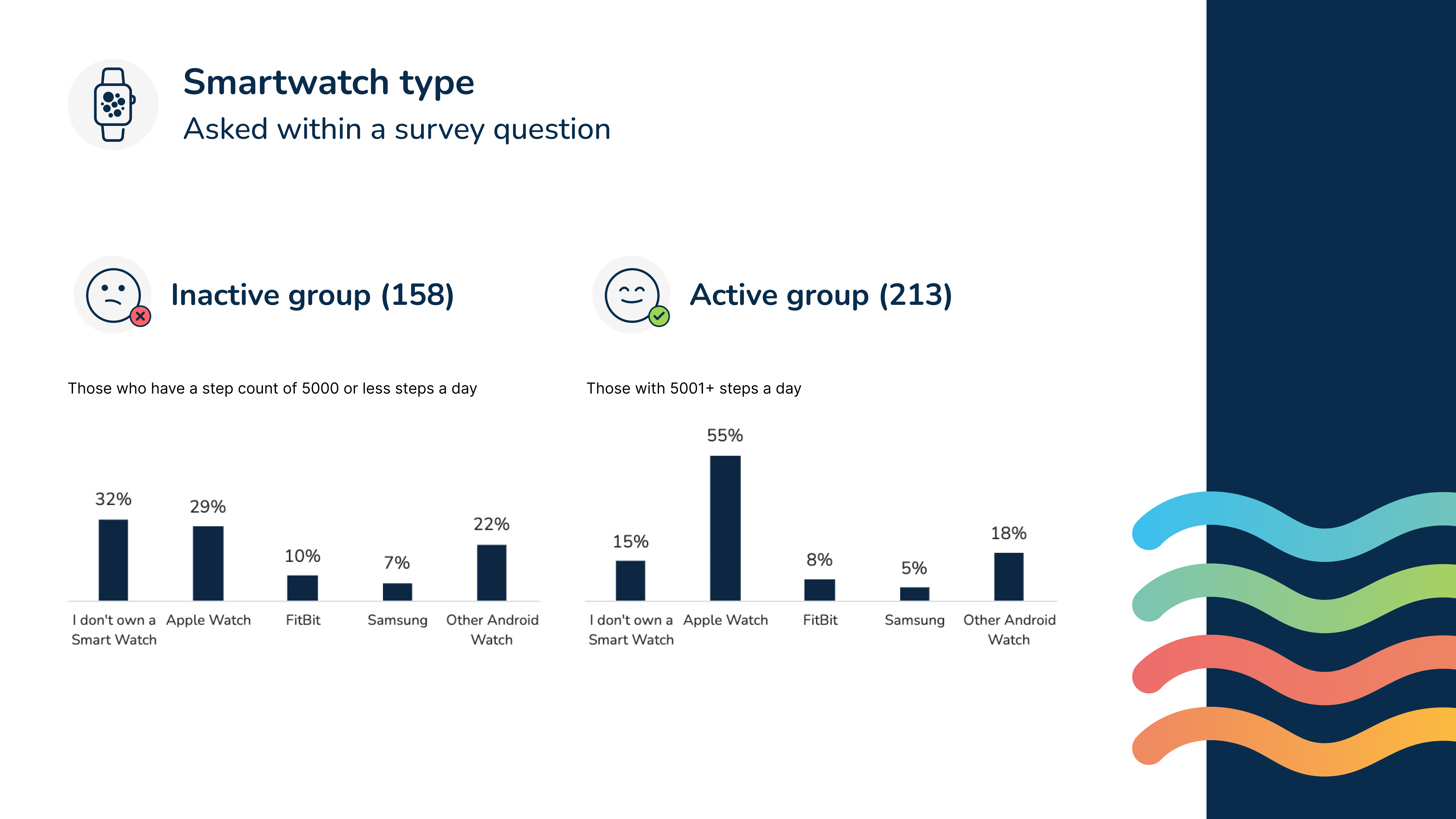
Conclusion
So one thing that is clear from the data: those who walk more steps per day seem to be healthier and more focused on being able to track their progress.
The other element that comes through is that more ‘Active’ Citizens are twice as likely to have a smartwatch, with Apple products dominating. So the question is, with such a dominance in sales, is Apple significantly contributing in helping to keep the UK population healthier? There is evidence in this study to suggest this could well be the case.
However, a counter to this argument is that perhaps the fantastic marketing engine that is Apple is able to cut through to the most active Citizens, with its promise of easy tracking of Citizens’ fitness. So is the data actually showcasing just how good Apple is at targeting the market with their products?
Perhaps this is something you wish to investigate further yourself. You can do this all through the CitizenMe Marketplace platform. Check out how to do this here:


